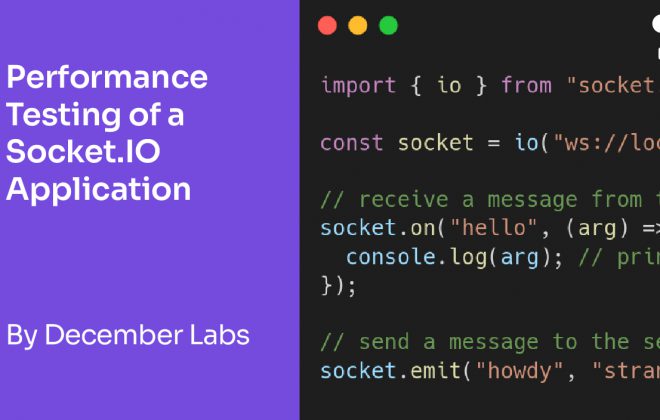

Good performance engineers need to know what’s “under the hood”
Recently, I was involved in a debate about whether it’s necessary for performance testers to understand the architecture of the system in order to become a specialist in performance/ performance testing/ performance engineering. At Abstracta, this is something we strongly believe in and stand for because the steps involved in performance testing require an in-depth knowledge of the system.
Here is a brief summary of the three main steps of performance testing:
- Test Definition
- Automation
- Execution and Monitoring
In defining the test, the main knowledge required of performance testers pertains to the business and knowing what the user behavior will be and expectations, among other things.
For the automation, the knowledge required is about the use of automation tools and communication protocols (HTTP, SIP, SOAP, ISO8583, etc.)
For executing and monitoring, performance testers must have an understanding of the fine details of the system’s components. The term “components” implies both internal components and the base software used: web server, database server, JVM, .NetFramework, etc. In order to add value at this stage, we must be quite experienced in testing and willing to understand how things work “at the low level”.
This variety of skills required is what makes this role an exciting challenge because there are always new technologies and solutions that are ever more complex.
At Abstracta, we often say that, testers, like doctors, diagnose exactly what is going on with the system and suggest remedies.
In short, we think that in order to be good performance testers, IT IS INDEED necessary and important to be knowledgeable about the architecture of systems and the details of their components. We believe its imperative for performance testers to understand the architecture of a system so it is our mission to help them with this understanding. Isn’t that what makes a good doctor?
Need a quick diagnosis? Contact us and let’s get started.
Recommended for You
[Infographic] Why Should I Become a Performance Tester?
Performance Testing in Production
Tags In


Sofía Palamarchuk, Co-CEO at Abstracta
Related Posts
Virtual Threads: JMeter meets Project Loom
Motivation: OpenJDK 19, to be released in September 2022, will incorporate a new disruptive solution: Virtual Threads, aka Project Loom. We want to learn if it is beneficial to use Virtual Threads in an application like JMeter to improve its performance. We want to experiment…
Performance Testing of a Socket.IO Application
If you’re going through the experience of trying to do a performance test with systems that use the Socket.IO library, one of the best ways is to use Locust, Taurus, and BlazeMeter. To learn more about this topic, read this article by December Labs, one…








